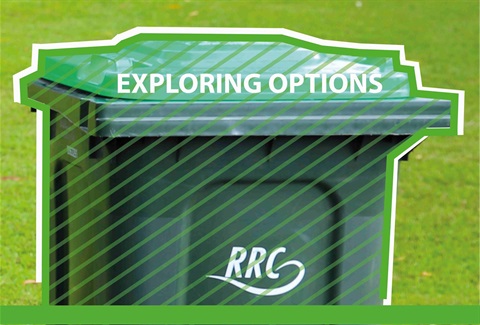Future Organics Service

Council is committed to building a more sustainable and environmentally responsible region. As part of this commitment, we’ve been exploring the introduction of a kerbside organics collection service to help households across our community divert organic waste from landfill more easily.
In 2021–2022, Rockhampton Regional Council and the Queensland Government launched a trial food and/or garden collection service to pre-determined households across the Rockhampton Region. The diversion of organic material from landfill is a key objective identified in the Australian Government’s National Waste Policy and Action Plan. The roll-out of the Food Organics Garden Organics (FOGO) / Garden Organics (GO) trial is an action outlined in the Queensland Government’s Waste Management and Resource Recovery Strategy and Queensland Organics Strategy and Action Plan.
As part of the trial, 750 selected households in the Rockhampton region received a Food Organics Garden Organics (FOGO) bin or Garden Organics (GO) bin.
Trial Outcomes:
- 282 tonnes of organic waste were diverted from landfill
- Households with the GO service diverted 41% of their total household waste from landfill
- Households with the FOGO service diverted 67% of their total household waste from landfill
This pilot program provided valuable insights into how a broader rollout could work, including the environmental benefits, operational logistics, and financial considerations. Feedback from participating residents was incredibly helpful and has played a key role in shaping our next steps.
Following the trial, Council developed a comprehensive business case to assess the feasibility of expanding the service across the region. While the findings were encouraging, Council has chosen to take a thoughtful and strategic approach. The final decision has been deferred for 12 months to allow time to consider upcoming changes to state waste management regulations. This ensures that any future rollout is well-aligned with broader policy changes and delivers the best outcomes for our community.
A report will be presented to Council by June 2026, and we’re committed to keeping residents informed and involved throughout the process. Once a decision is made, we’ll provide clear updates on what to expect and how to take part.
We appreciate your interest and support – together, we’re working towards a cleaner, greener future for our region.
You can help fight food waste and manage your own organic waste at home by following the link HERE.
Frequently Asked Questions
What do the compostable labels on packaging mean?
There are lots of labels on packaging and understandably, this can present challenges in knowing how to correctly compost or dispose an item.
Below is a brief overview of compostable labels on your product packaging.
Home Compostable Verification Logo (Australian Standard AS 5810)
The Home Compostable Verification logo identifies and differentiates packaging materials as biodegradable and compostable. To be certified compostable and carry the Home Compostable Verification logo, suitable biopolymer materials must undergo a stringent test regime outlined by AS 5810-2010 and carried out by recognised independent accredited laboratories to the Australian Standard.
If a product is labelled Home Compostable, then it can go in a home compost system.
Certified Compostable (Australian Standard AS 4736)
The Seedling logo clearly identifies and differentiates packaging materials as biodegradable and compostable. To be certified compostable and carry the Seedling logo, suitable biopolymer materials must undergo a stringent test regime outlined by AS4736 and carried out by recognised independent accredited laboratories to the AS4736 standard.
If a product is labelled Certified Compostable with the Seedling logo, it will need to go to a commercial composting or a commercial organics recycling facility.